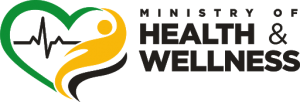This component examines and addressed how underlying factors influence risk-taking or appropriate behavior, what strategies are effective in changing or sustaining behavior and how best to replicate successful strategies. This component also examines reasons for a lack of behavior change in some areas despite behavior change communication (BCC) efforts. Key to prevention efforts is for individuals to have the self-efficacy to adopt and maintain appropriate behaviours.
The Behaviour Change Communication (BCC) aspect of Prevention focuses on controlling the spread of HIV/AIDS among high-risk groups and the wider population by promoting safer sexual behavior. The priorities for this component are the most at risk populations (MARPs) which include commercial sex workers (CSWs), men who have sex with men (MSM), adolescents, persons living with HIV (PLHIV) and inmates. As such, our interventions are designed to address the risky behaviours and vulnerability of these populations. The success met in changing or sustaining behaviour have been through employing a multisectoral approach; working closely with other agencies that offer services that are useful to these populations such as the Jamaica Foundation for Life Long Learning (JFLL), HEART Trust/NTA, National Council on Drug Abuse (NCDA), and the Programme for the Advancement of Through Health and Education (PATH), the Registrar General Department (RGD) among others. Interventions among these MARPs are supported with messages in the form of media campaigns and materials which provide information or serve as reminders.
